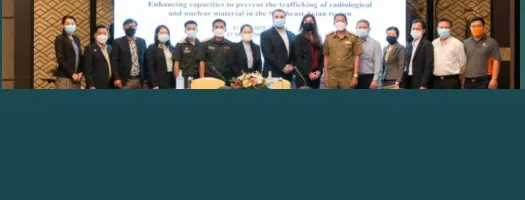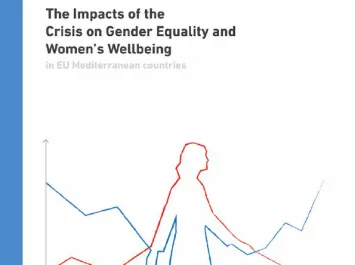On 17-18 March 2022, UNICRI traveled to Vientiane for a workshop with Lao People's Democratic Republic’s authorities in charge of combating the trafficking of radiological and nuclear (RN) material. The workshop was conducted within the framework of the project “CONTACT – Enhancing capacities to prevent the trafficking of radiological and nuclear material in Southeast Asia”.
The workshop involved representatives from the Ministry of Defense; Ministry of Public Security; Ministry of Finance; Ministry of Industry and Commerce; Ministry of Education and Sport; and the Ministry of Foreign Affairs.
The event represented an important opportunity for UNICRI officials to provide an overview of the project and its different phases of implementation; and to present the training curriculum specifically developed for security, law enforcement and nuclear regulatory authority staff on intelligence-led operations to thwart RN trafficking attempts. During the meeting, UNICRI and participating national authorities also reviewed and moved towards the finalization of the Lao PDR’s CONTACT Country Report, which sets forth the state’s current needs and priorities in the area of preventing and detecting RN trafficking.
“The CONTACT Project - tailor-made to best fit into the Lao PDR context thanks to its focus on providing capacity building and specific training curriculum on preventing and responding to radiological and nuclear trafficking incidents - will greatly contribute to efforts put in place by the relevant national sectors to improve capabilities in this field”, said Ms. Moukdavanh Sisoulith, Deputy Director of the Department for International Organizations at the Ministry of Foreign Affairs of Lao PDR.
CONTACT – Southeast Asia aims at enhancing capacities of nuclear security stakeholders in Cambodia, Lao PDR, Philippines, and Viet Nam to devise and carry out operations to thwart radiological and nuclear (RN) trafficking attempts, as well as to foster regional cooperation and communication among the four partner countries. The project is funded by Global Affairs Canada’s Weapons Threat Reduction Program.



